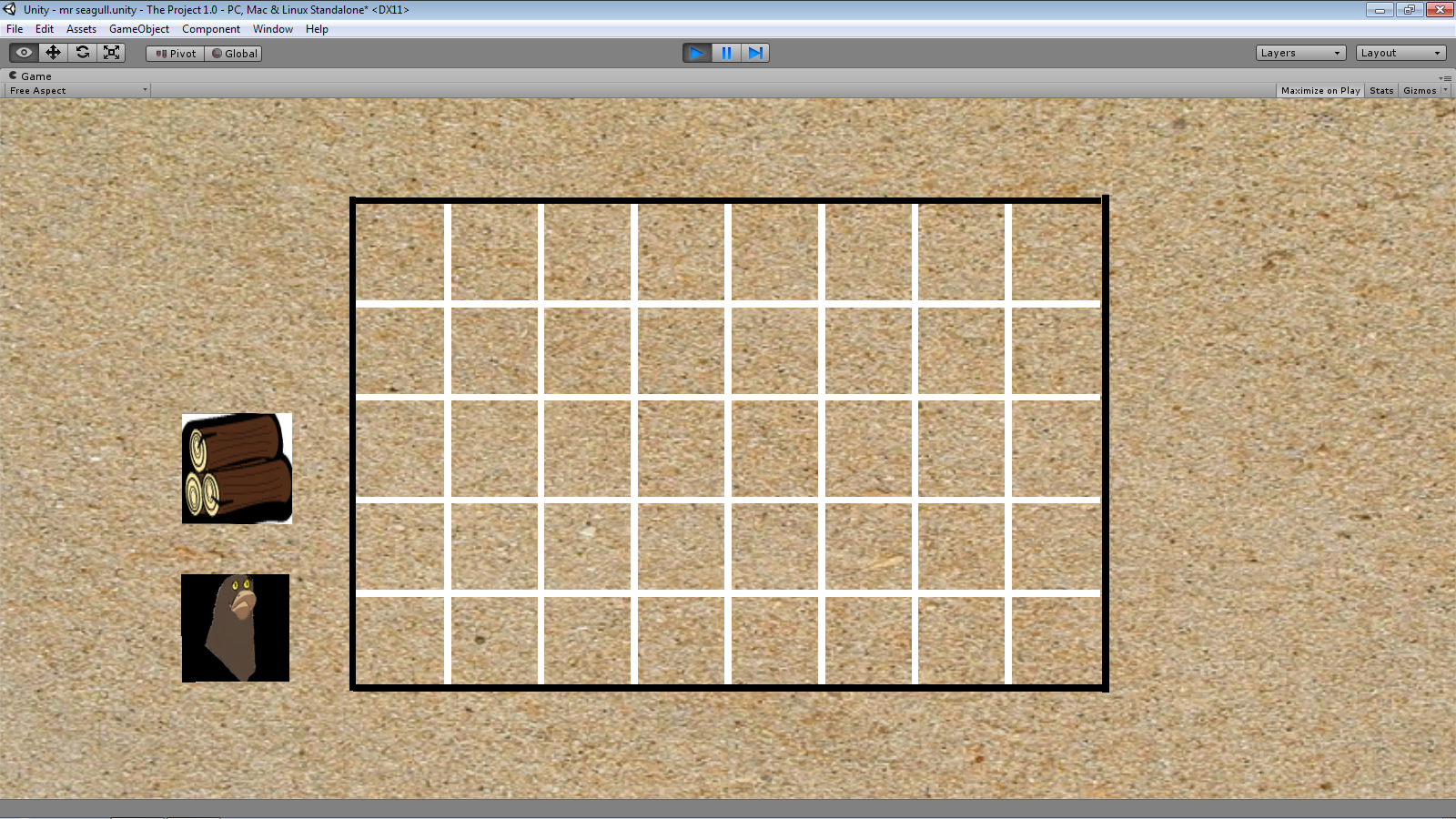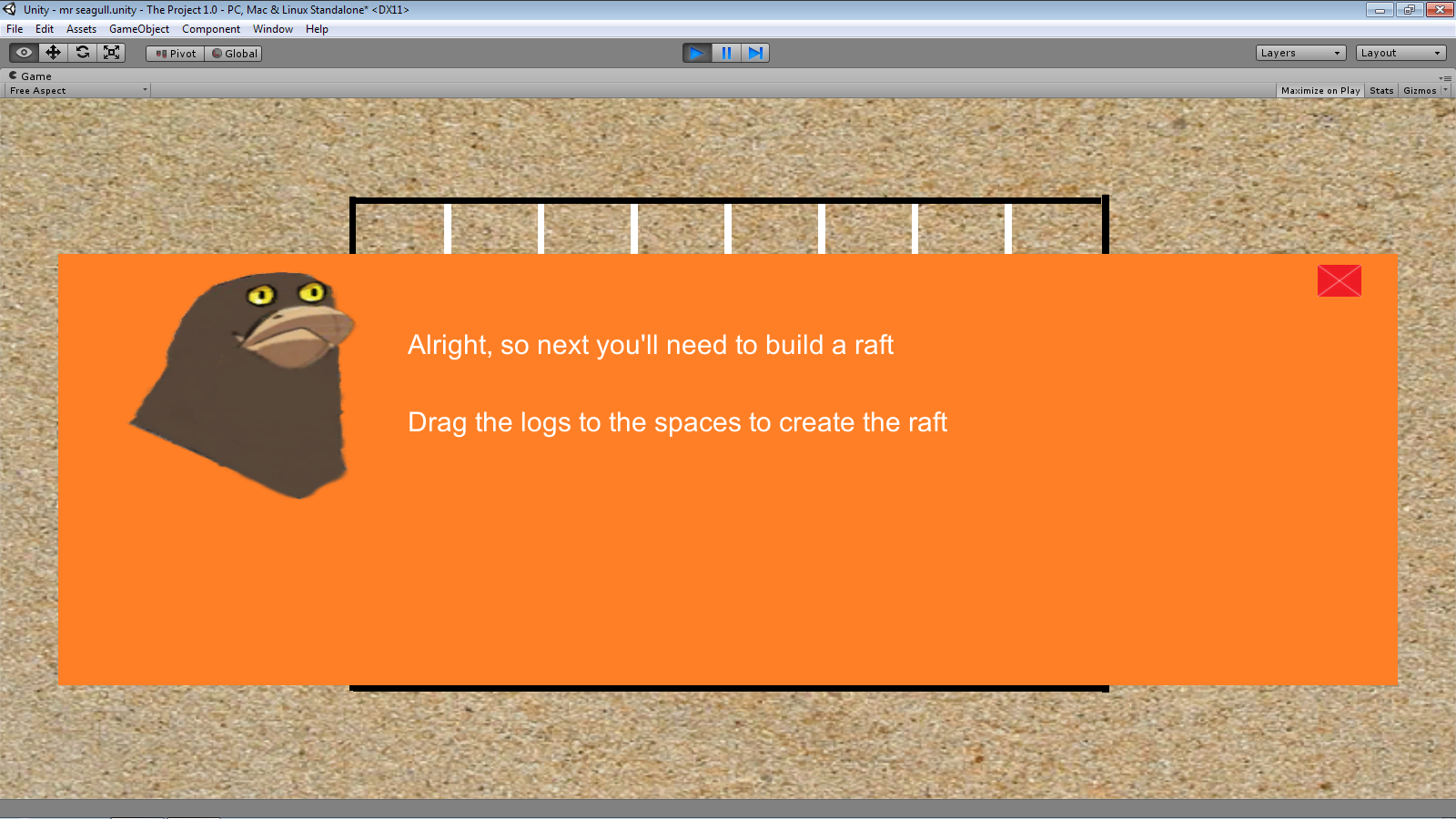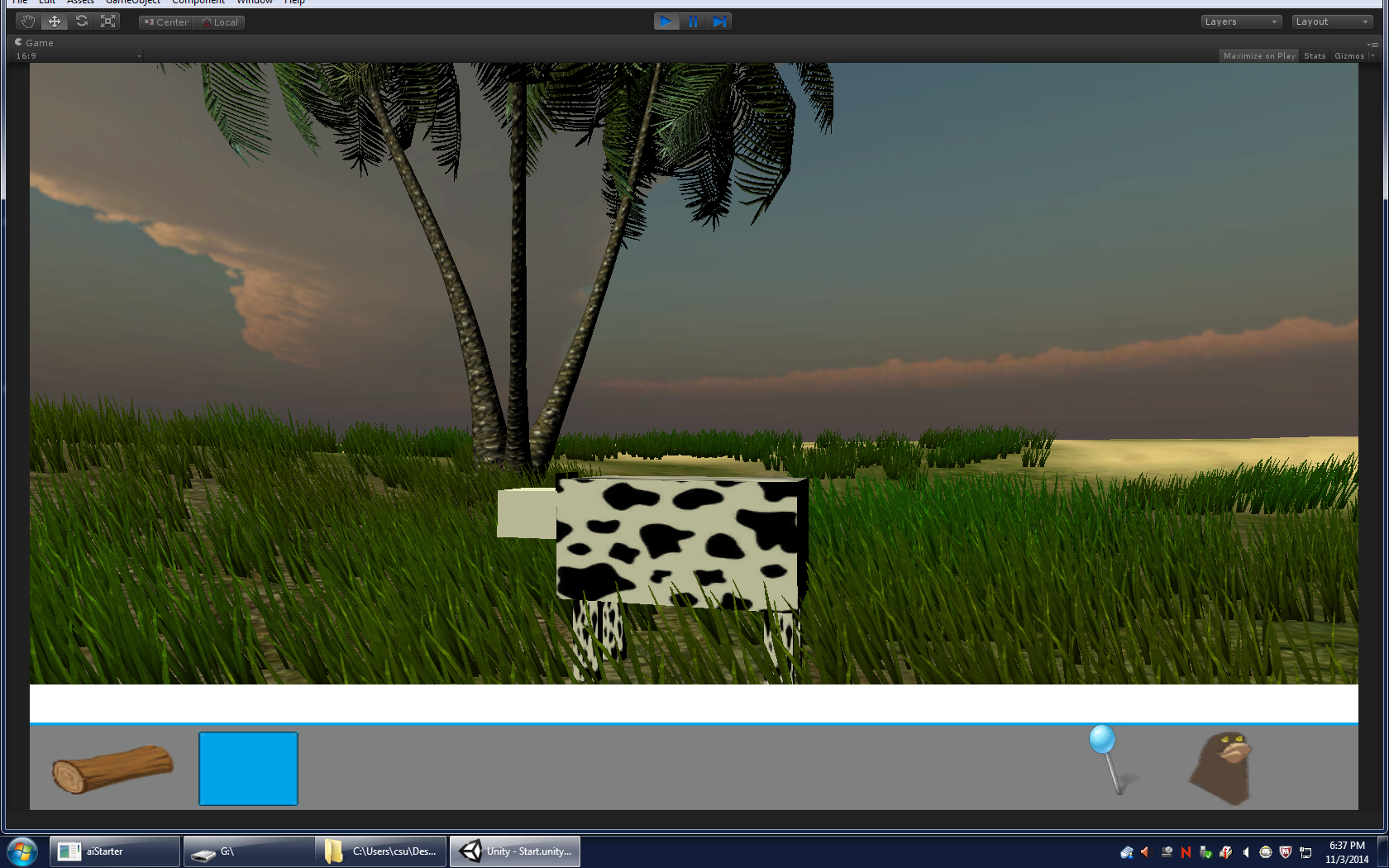
Research Projects
Computational Creativity
Research Project: Pharaoh: A context based structural similarity computational model to retrieve cognitive scripts
Researcher: Rania Hodhod
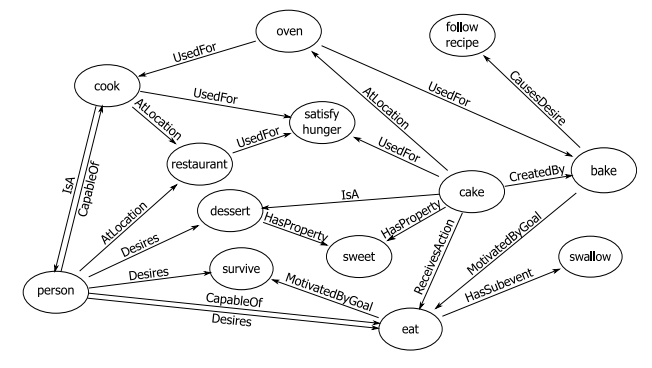
Computational creativity aims to model, simulate or replicate creativity using a computer. One creative cognitive process is conceptual blending that requires the presence of two or more conceptual spaces and means to blend those spaces in a meaningful way. CB is one cognitive skill we apply in our daily life unconsciously in which elements and vital relations from diverse scenarios are "blended" in a subconscious process, which is assumed to be ubiquitous to everyday thought and language. Most existing cognitive systems assume the presence of the input spaces and focus on the blending process. Only few considered the selection process for the second space but none of the approaches were applicable to cognitive scripts. This results in the development of Pharaoh, a context based structural retrieval algorithm for cognitive scripts. Despite the different focus of the current cognitive models including Pharaoh, they all require the presence of a generic space to guide the mapping of the relevant concepts in the input spaces. The generic space uses common vocabulary in the mapping process of the isomorphic input spaces (enforced in all existing cognitive systems). We argue that the use of isomorphism ties the current cognitive systems and can be a real obstacle when it comes to cross domain mapping where domains are represented with different vocabulary. Accordingly we work on turning Pharaoh to SmartPharaoh, a computational model that uses ConcepNet to provide inexact matching in the structural mapping approach while preserving the context of the input spaces. We argue that this approach bridges the gap between the current cognitive systems that uses isomorphism and human analogical reasoning which uses inexact reasoning.
Research Project: Developing a Creative Story Teller Agent
Researcher: Dominique Tillman
This research aims to develop a creative storytelling agent that makes use of commonsense knowledge bases to create new interesting stories from simple story templates. The storytelling agent makes use of a commonsense knowledge base known as “ConceptNet”—an artificial intelligence project started in 1999 at the Massachusetts Institute of Technology-that is built from nodes representing concepts, in the form of words or short phrases of natural language, and labeled relationships between them. These are the kinds of things computers need to know to search for information better, answer questions, and understand people's goals. The story creation process includes placement of new words (retrieved from ConceptNet) into a story template. For example, if the template were to give the agent the phrase: “a boy name”, it can query ConceptNet and retrieve “Bob” or “Jack” on the basis of those being described as boys names. Similarly, the template can query “a girl’s name” or a “unisexual name” and return results that ConceptNet finds applicable. A story telling engine has been developed using the Integrated Developer Environment (IDE), Xcode to connect the agent to ConceptNet. A longer term goal with this project is to manifest this agent on a variety of platforms—but this requires some more optimization of ConceptNet and expand the knowledge base of the agent to include whole phrases instead of singular words.
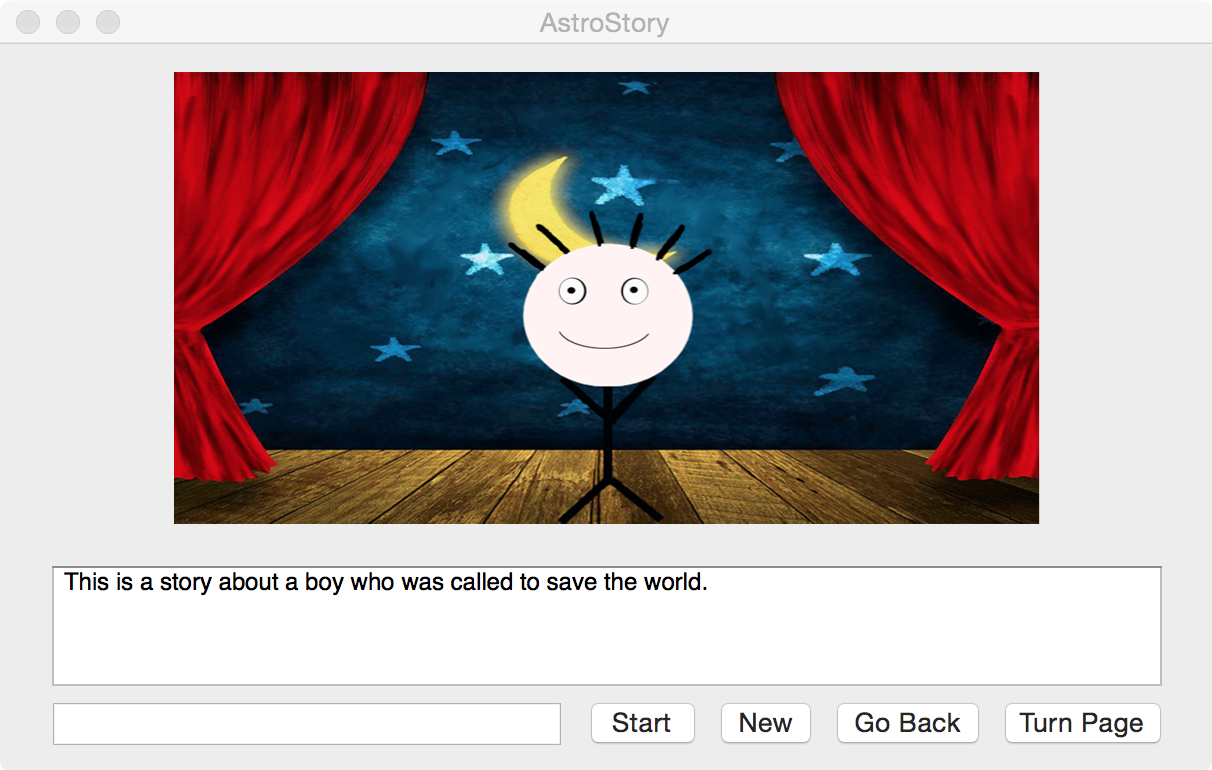
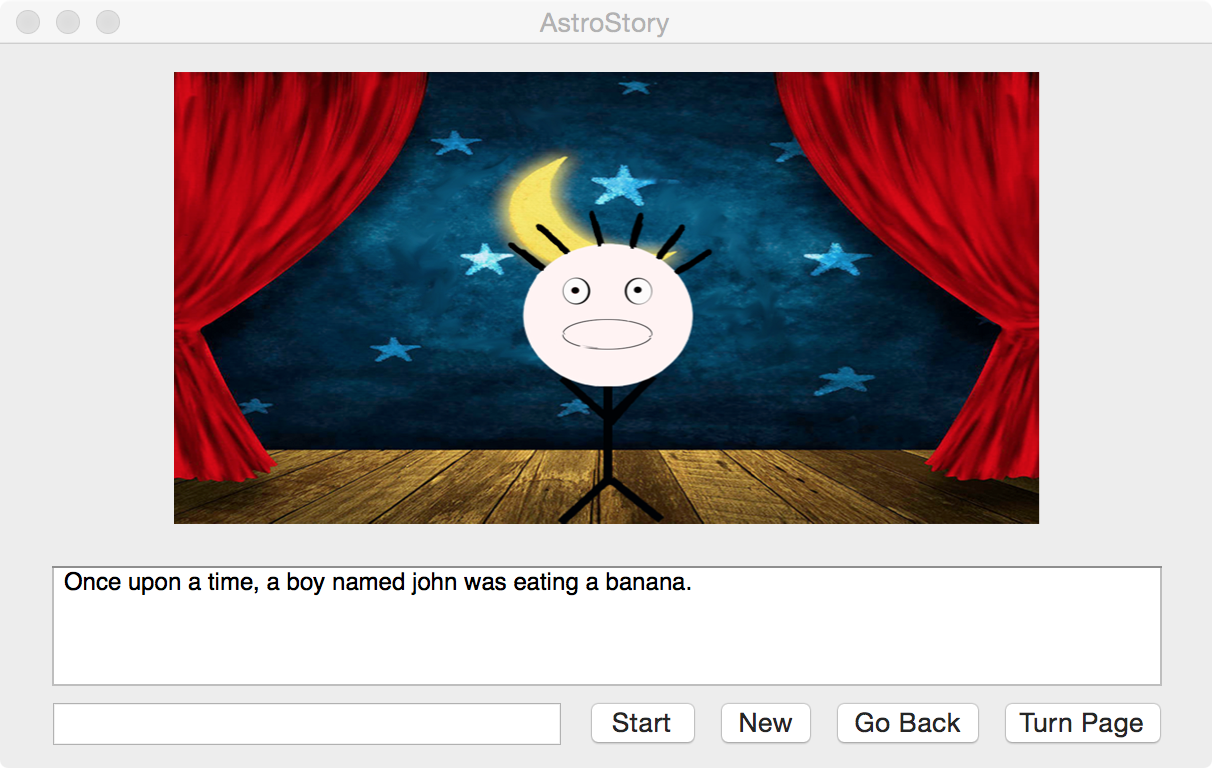
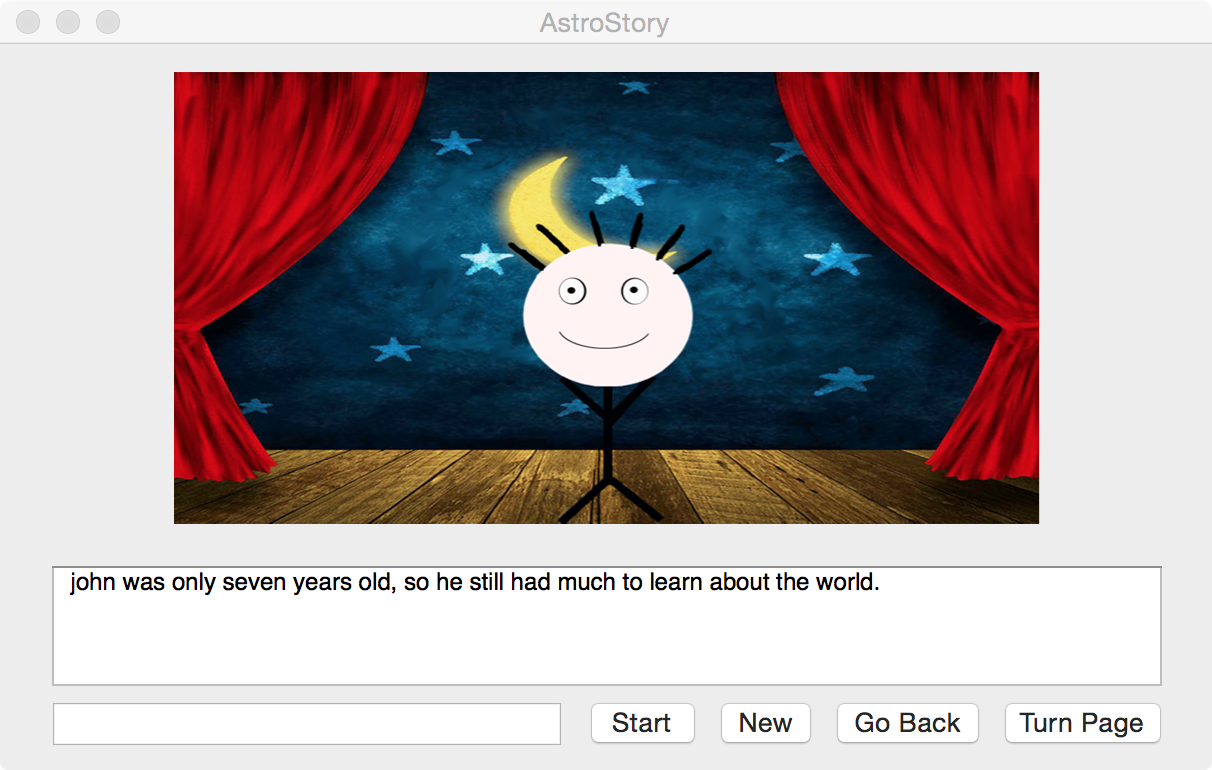
Computer Science Education
Research Project: The Use of Technology in Computer Science Education
Researcher: Hillary Fleenor
Computers have become an essential cornerstone of modern society. Education has not kept pace with the rapid changes that computer technologies have affected on society, especially in the integration of instruction in computational thinking skills and problem solving which are believed to be essential for using and developing such technologies. There is a push within the technology community to introduce computational thinking and problem solving skills as early as possible in the academic curriculum to help prepare students to cope, thrive, and contribute to a society dependent on technology. This research investigates the use of technology in computer science education, with an emphasis on the teaching and learning of computational thinking and problem solving skills, as well as the learning theories applied in these technologies. Current focus is on assessing the current state of the research literature to identify trends in how learning theories are applied to computer science education.
Serious Games
Research Project: Pop-up Java: An Augmented Reality Mobile Game to Teach Java
Current Researchers: Richard Myers
Pop-up Java is an augmented reality serious game aims to be used as an assistive teaching tool in the classroom to support learning Java programming language. The game can be played on tablets and other mobile devices using the camera of the device it is installed on. Pop-up Java introduces the player with challenges that require the use of real-world Java programming skills while playing the game to create new assets and control existing assets in the game to overcome a variety of challenges. The game is rendered on an “augmented reality marker” in the real world, which allows the player to physically move the puzzles in different directions to gain further insight into the spatial dimensions of the challenges. These spatial reasoning challenges give the player a more tangible environment to learn Java programming concepts, and to easily identify bugs in their code as they see it execute within the game, line by line, in real time (to our knowledge no other existing augmented reality educational game exhibits this feature).
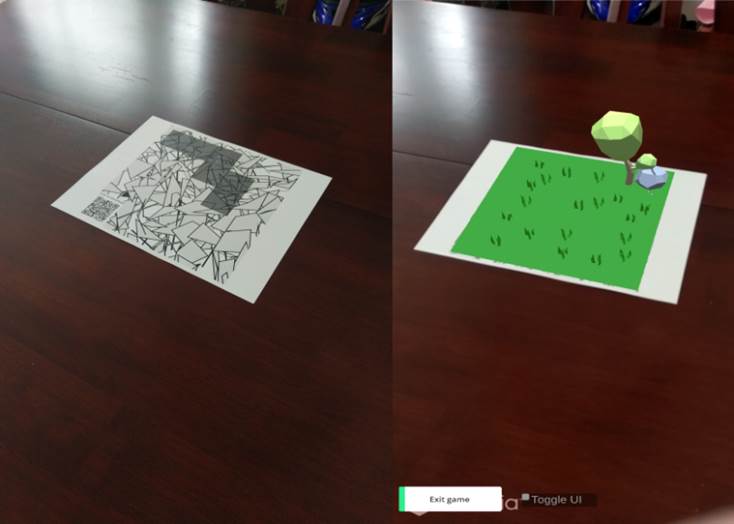
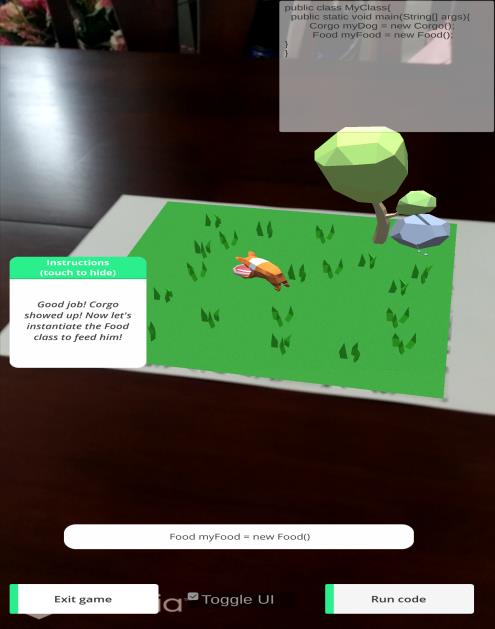
Research Project: Pop-up Java: An Augmented Reality Mobile Game to Teach Java
Current Researchers: Richard Myers
CompuTrain is an augmented reality serious game to teach computational thinking to young children. CompuTrain aims to provoke problem solving, pattern recognition and critical thinking at the players through solving augmented reality puzzles. The game utilizes augmented reality and adaptive game play to give the player the ability to view each puzzle from different angles and provide individualized game play. Adaptive gameplay uses a player's model to change the game based on each player’s skill level as the game decides what the next puzzle should be based on how the player solved the previous one(s).
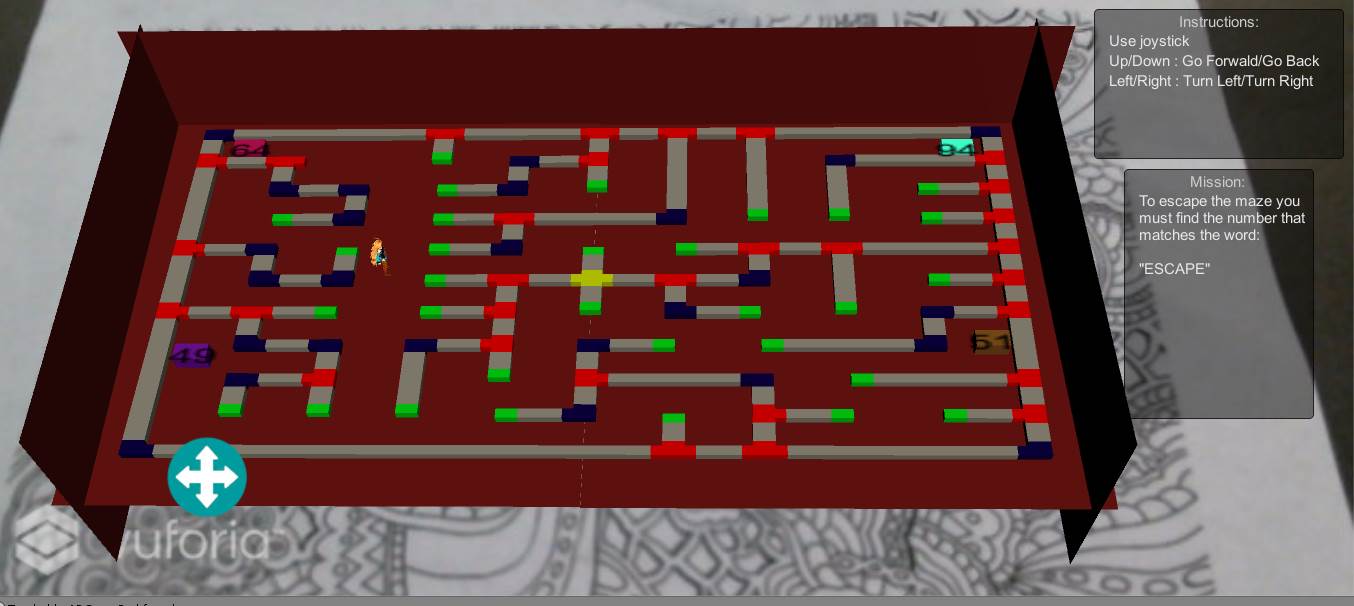
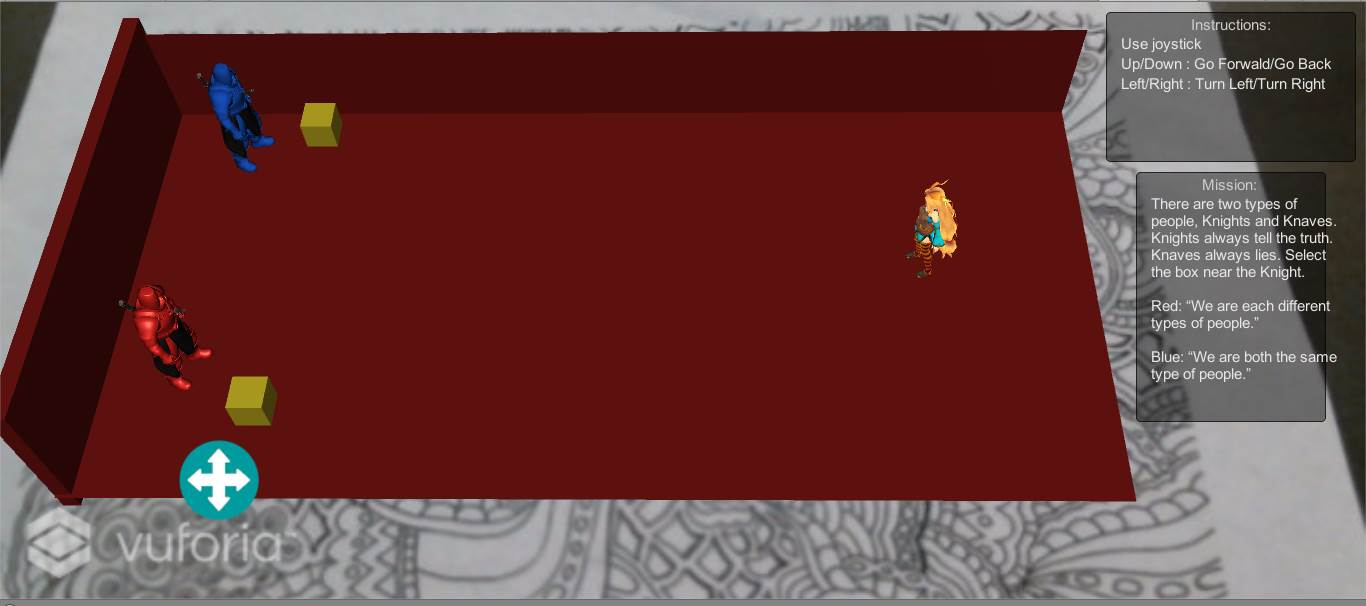
Research Project: AmonPlanet: Developing an Adaptive Augmented Reality Serious Game to Foster Computational Thinking
Current Researchers: Hillary Fleenor, Kristen Wright, and Brandon Molyneaux
Previous researchers: Syedali Nabi and William Fowler
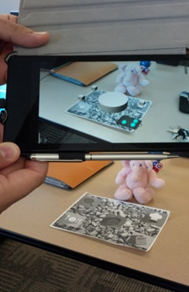
Studies show that our students lack computational thinking skills in high school, which raises the need to establish new methods to develop these skills in our younger learners. This research aims to develop an augmented reality serious game, AmonPlanet, that utilizes proven learning theories and different pedagogical strategies to guide, motivate and assist in their learning process while playing the game. The project uses the popular game development engine, Unity, to implement a serious game that incorporates narrative, problem solving tasks, intelligent tutoring capabilities, and augmented reality to provide a learning experience that is both engaging and adaptive to student learning. AmonPlanet is aimed for Android devices to facilitate usage by students at their homes and is designed to offer a good user experience and entertainment which we hope will encourage learners to invest more time in the learning process. Moreover, AmonPlanet offers different teaching pedagogies based on the student’s preferences (how he interacts with the environment). The goal is to explore whether student preferred learning style can be predicted by how they interact with the gaming environment.
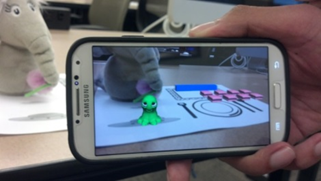

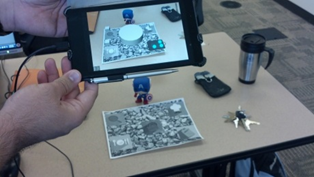
Research Project: Perimarea Island: A Serious Game to Develop Mathematical Thinking at Young Children
Researchers: Hillary Fleenor, Jordan Harrelson, and Ian Jensen
This project is an interdisciplinary project between the Department of Childhood Education and TSYS School of Computer Science. The project aims to tie some of the sound cognitive and educational theories to the design of serious games. Perimarea Island is a serious game that allows active learning where educational tasks are weaved into the game story. The students have to achieve the educational goals in order to finish the game. Different elements have been used in Perimarea Island in order to engage the student, such as having a background story, weaving the educational tasks into the game story, giving non playing characters pedagogical roles, and providing visual feedback (positive and negative) that is part of the story too.
Expert Systems
Research Project: Using a Hybrid Expert System to Evaluate Hazard Identification in Risk Management
Researcher: Heath McCormick
Since its inception, the US Army’s Risk Management process has served as a formal methodology intended to assist leaders in dealing with the risks associated with training and combat activities. Though there are both scholarly and doctrinal research and literature available that provide an overview of risk management processes, there is little available that directly addresses the question of “what factors lead different individuals to perceive what hazards are or are not present in the same situation?” The researcher aims to address that question in this study by identifying subgroups of Army officers in a respondent population who demonstrate similar tendencies in identifying or failing to identify hazards as part of the Army Risk Management process and then to analyze those subgroups in order to identify any trends in demographic and experiential characteristics present within them. The multi-phase project will utilize a hybrid expert system to identify characteristics within those subgroups. The desired end state of the research is to provide the Army with subgroup-centric feedback for use in developing targeted training to better tailor RM education for those specific groups to ensure a more uniform understanding of hazard identification.
Research Project: Risk Management Hazard Analysis and Risk Determination in the United States Army
Researcher: Charles Karles
Risk Management is an essential part of all military operations, and its successful conduct forms the foundation of an executable plan. The integration of RM into the Military Decision Making Process (MDMP) is takes place at all echelons of military planning. Hazard Analysis and Risk Determination are critical parts of the RM process because they determine the level of initial risk that the commanders or planners will assign to the operation. There has been no study identified that analyzes how different populations of leaders assign this risk. If trends can be determined within various leadership communities they may identify training limitations that can be addressed for those particular groups. This research investigates the presence of trends or similarities within populations of leaders in the United States Army in terms of how they evaluate hazards and assign levels of risk, in addition to the trends associations, if any.
